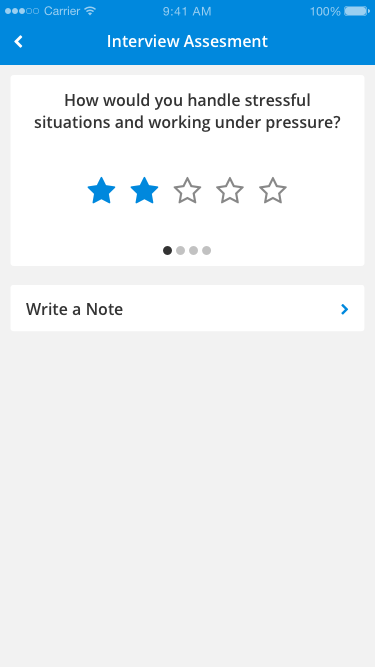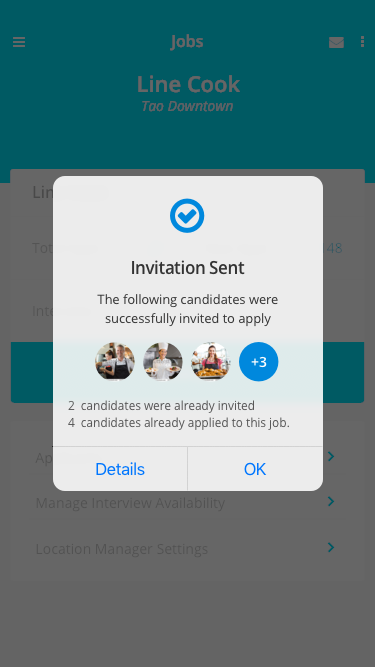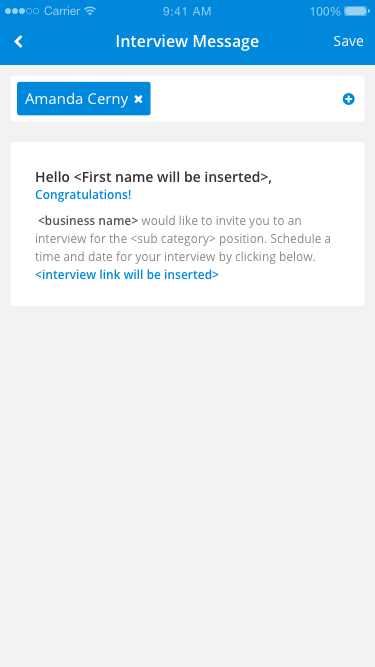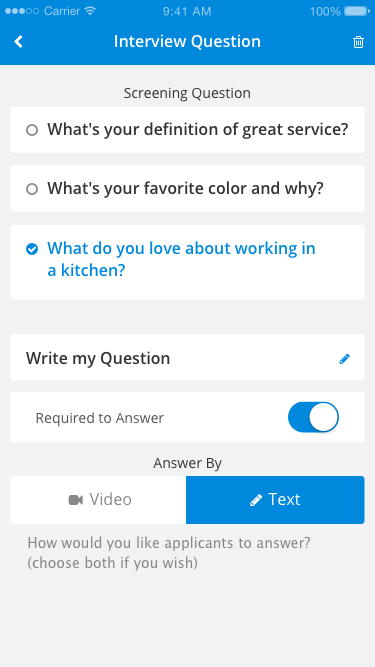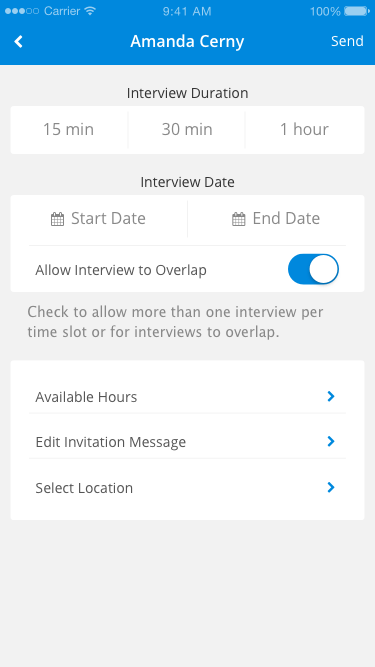Harri's Summer Series: Reward and Benefit
/This year, we’re excited to debut our Summer Series in the UK, a selection of events for senior hospitality professionals. Co-chaired by Harri’s Cleo Clarke, Global Vice President of Human Resources Strategy, and Tom Howes, Product & Training Manager, these events aim to bring together a diverse group of professionals to discuss topics which help businesses build a successful employee value proposition (EVP). An EVP is defined as ‘what an organisation stands for, requires, and offers employees’*.
To really dig into how to build a successful EVP, we’ve segmented topics that must be covered in order to create a strong offer for potential and current employees.
In the first session, which took place June 27, 2018, Rachael Bolton (Head of People, ETM Group), Becky Rose (Head of People, Coppa Club / Strada), Simon Milligan (Recruitment Manager, Sticks ‘n’ Sushi), Gemma Catlin (Head of People & Development, The City Pub Company), Carol Cairnes (Head of People, D&D London), Simon Wedlock (Recruitment Manager, The City Pub Company), Andrew Meechan (Talent Manager, Third Space), Janene Pretorius (Director of People, The Ivy Collection), Jose Rubio (Head of Recruitment UK, Ole & Steen) gathered gathered bright and early at The Riding House Cafe in Central London to discuss how their reward and benefits may be the first key to a great EVP (and enjoy a delicious breakfast).
The first session opened with a recap of the current state of play in the U.K. Unemployment has continued its downward movement and is at an all-time low of 4.3%. As expected, there was an average earnings increase and government relief at this time. Unemployment has seen little movement, with weekly earnings remaining much the same over the last 3 years**. However, this year has seen changes, with the national living wage increasing by a whopping 4.7%, which equates to an extra 33p/hour (or £50/month) per employee.
These changes, coupled with the fact that labour spend is a consistently relevant topic for the hospitality industry, meant that discussing reward and its effect on employee motivation and engagement was up for discussion first. Cleo opened by asking attendees if compensation was a leading factor for employee satisfaction and engagement. Many people disagreed with this for front of house employees (e.g. waiters, sommeliers, management), suggesting from recent experience that these individuals derive satisfaction from things like creating experiences and having lovely co-workers.
“Oversupply, in ever increasing consumer choice and employment options has the sector in a bind. To stand out in this crowded space we have launched our Employee Value Proposition ‘Expect More’. We know already that our guests to expect more from us in terms of food and service, and now we want our teams to share the same high expectation from us in terms of the training and career development they can expect.”
On the flip side, other attendees agreed with this sentiment for kitchen/operations employees (e.g. chefs) suggesting that during recruitment conversations in particular, kitchen/operations applicants tend to be more interested in their take-home base pay and how this compares to other friends or connections in the industry, sparking one restaurant HR attendee to question how clear advertising is when concerned with salary. This generated comments from all about making a move, especially with entry-level employees, to talk about take-home wage rather than hourly rates, as this may be more useful to those prospective/promoted employees.
Based on this conversation, it seemed that many of the hospitality professionals in attendance have moved to make all positions below senior management payable at an hourly rate, thus allowing employees more control and understanding of their expected take-home pay. It was also suggested that attendees who took this route saw increases in reliability, productivity, and engagement.
Cleo, who implemented highly detailed compensation strategy and guides in past roles, shared his thoughts on how this can improve a business. Many attendees stressed the importance of having a guiding remuneration committee for any banding/grading decisions in order to provide differing perspectives.
Another hot topic discussed was the gender pay gap. The group was asked about their response to the gender pay gap reporting and their subsequent course of action. Of those using Tronc or other tip systems, many expressed that figures were difficult to generate, thus leading to a misrepresentation of their business. Some were happy to report that they had a positive difference in head offices; however, noted there were noticeable disparities between head offices and on-site staff. These disparities were most visible when talking through how compensation changes are managed. Many reflected that practices of the past (subjective pay changes) were very much “out” and more value lead clear pay for performance cultures were becoming more accepted at the front line.
Tom and the head of HR for a large group shared stories of budgeting for people metrics (i.e. recruitment/retention costs linked to bonus outcome) which received positive response. Many agreed they were in the process of or had already moved to such a system due to their counterparts in other businesses and industries showing positive progress with this methodology.
Considering the bonus and extra compensation employees may receive in our organisations, the conversation moved toward benefits; a key theme being the localisation of benefits to employees. One of the attendees from a hospitality business with wide reach and a diverse portfolio suggested that this was the only way they’d seen engagement from their teams with benefits. More generic solutions, e.g. Perkbox, seemed to be on the way out and a larger focus on unique employee useability was key.
Tom and Cleo had seen real, positive uptake on this with surveys, one way to gain insight. One attendee had a response rate close to 50% after 1 week on an all-employee survey for benefits (which for many was considered a good response). Some of the attendees had already undertaken this process and started relevant and requested benefits with their employees, including cash health plans and boosted employee discounts (some giving management up to 100% off inclusive of friends and family).
“A competitive salary alone is not enough to retain top talent. We recognise that employees want a clear career path and support in reaching their potential. In response we have invested heavily in L&D. Amongst others we have launched 3 new D&D London Diplomas , developed an online appraisal system and trebled the number of training courses and workshops on offer.”
Excitingly, there was one attendee who had worked closely with their tech team to develop an internal application where employees could communicate, receive discounts, and earn points for use at their sites. This has dramatically decreased their benefit overall spend and brought employee focus across all departments and locations back to the business and the great food, beverage, and accommodation on offer.
Key Takeaways for Hospitality Employers
From this session, it was clear that there is real engagement across the industry on becoming more attractive for potential candidates and more beneficial for current employees. From a wonderful morning of scrumptious breakfast and intriguing deep conversation, there are some serious questions you should be asking yourself to create the reward and benefit element of your employee value proposition:
Changes to NLW & Unemployment Statistics:
Are your front-line managers aware of these changes and what their response plan will be?
Less Generic, More Tailored:
Are you considering differentiated offers in reward and/or benefit for customer-facing and kitchen/operational employees which will meet their needs?
Have you considered changing your advertising from a standard hourly/salary to a take-home wage?
Ownership:
Where do your people costs sit?
Are your front-line managers truly aware of the cost to their business?
Commitment & Cooperation:
Have you considered the use of committees or focus groups to understand your employee’s needs and give collective buy-in to actions you take?
Sources:
*CIPD, 2017
**ONS, 2018



